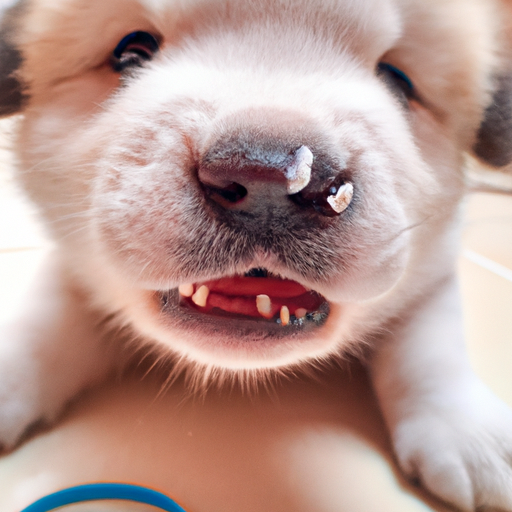Introduction
You’ve been watching over your little furball, providing the best care possible, when something catches your eye. It’s a tiny, sharp-looking tooth on the floor. So, you might be wondering, is this normal, or should you be worried? Let’s dive into the fascinating world of puppy dental development and demystify the process of puppy teeth falling out.
Understanding Puppy Dental Development
Just like us, dogs have two sets of teeth in their lifetime: deciduous (baby) teeth and permanent (adult) teeth. However, unlike humans whose teeth can take years to develop, puppies experience a rapid dental transition.
Deciduous Teeth
Deciduous teeth, also known as puppy or milk teeth, start to emerge when puppies are around 2-3 weeks old.
By the time they are 8 weeks old, most puppies will have a full set of 28 deciduous teeth. These include:
- 12 incisors
- 4 canines
- 12 premolars
Permanent Teeth
Permanent teeth begin to replace the deciduous teeth when puppies are around 12 to 16 weeks old. By the time they are 6-7 months old, most dogs will have a full set of 42 permanent teeth. These include:
- 12 incisors
- 4 canines
- 16 premolars
- 10 molars
The Process of Puppy Teeth Falling Out
As your puppy grows, their jaws increase in size, creating room for the larger, adult teeth. The roots of the deciduous teeth resorb, causing the teeth to become loose and eventually fall out. This process can sometimes cause your puppy mild discomfort or might go unnoticed.
Signs Your Puppy is Losing Teeth
You may notice a few signs when your puppy’s teeth start falling out:
- Increased chewing: Puppies often chew more when they’re teething to relieve discomfort.
- Spots of blood: You might see a little blood on their toys or notice some bloodied spots around the house.
- Missing teeth: Gaps in your puppy’s mouth where you know teeth used to be is a sure sign of teeth falling out.
How to Care for a Teething Puppy
Teething can be a tough time for your puppy, but there are ways you can help:
-
Chew Toys: Provide safe, puppy-approved chew toys. These can provide relief from teething discomfort and also keep your puppy from chewing on inappropriate things.
-
Cold Treats: Offering cold treats like frozen carrots or special puppy teething toys can relieve sore gums.
-
Regular Check-ups: Regular vet check-ups will ensure that your puppy’s teeth are falling out and growing in correctly.
What to Do if Puppy Teeth Don’t Fall Out
Occasionally, a puppy’s deciduous teeth don’t fall out naturally, a condition known as retained deciduous teeth. This usually happens with the canine teeth. If you notice this:
- Schedule a vet visit: Your vet can determine if extraction is necessary to prevent future dental problems.
FAQ
Q: Is it normal for puppies to swallow their teeth?
A: Yes, it’s quite common for puppies to swallow their fallen teeth while eating or playing. This is generally not a cause for concern as the teeth will pass through the digestive system without causing harm.
Q: Can I pull out my puppy’s loose tooth?
A: It’s advisable not to pull out your puppy’s loose tooth. Doing so could cause pain or damage the developing adult tooth.
Q: Should I brush my puppy’s teeth while they are teething?
A: Yes, maintaining good dental hygiene is important, even during teething. Use a soft brush and specially formulated puppy toothpaste.
So, there you have it. The journey of puppy teeth falling out is completely normal and a part of growing up. With your care and support, your pup will sail through this phase with ease. Always consult your vet if you have concerns about your puppy’s teeth or overall health. You are doing a fantastic job as a caregiver, and your puppy is lucky to have you.



